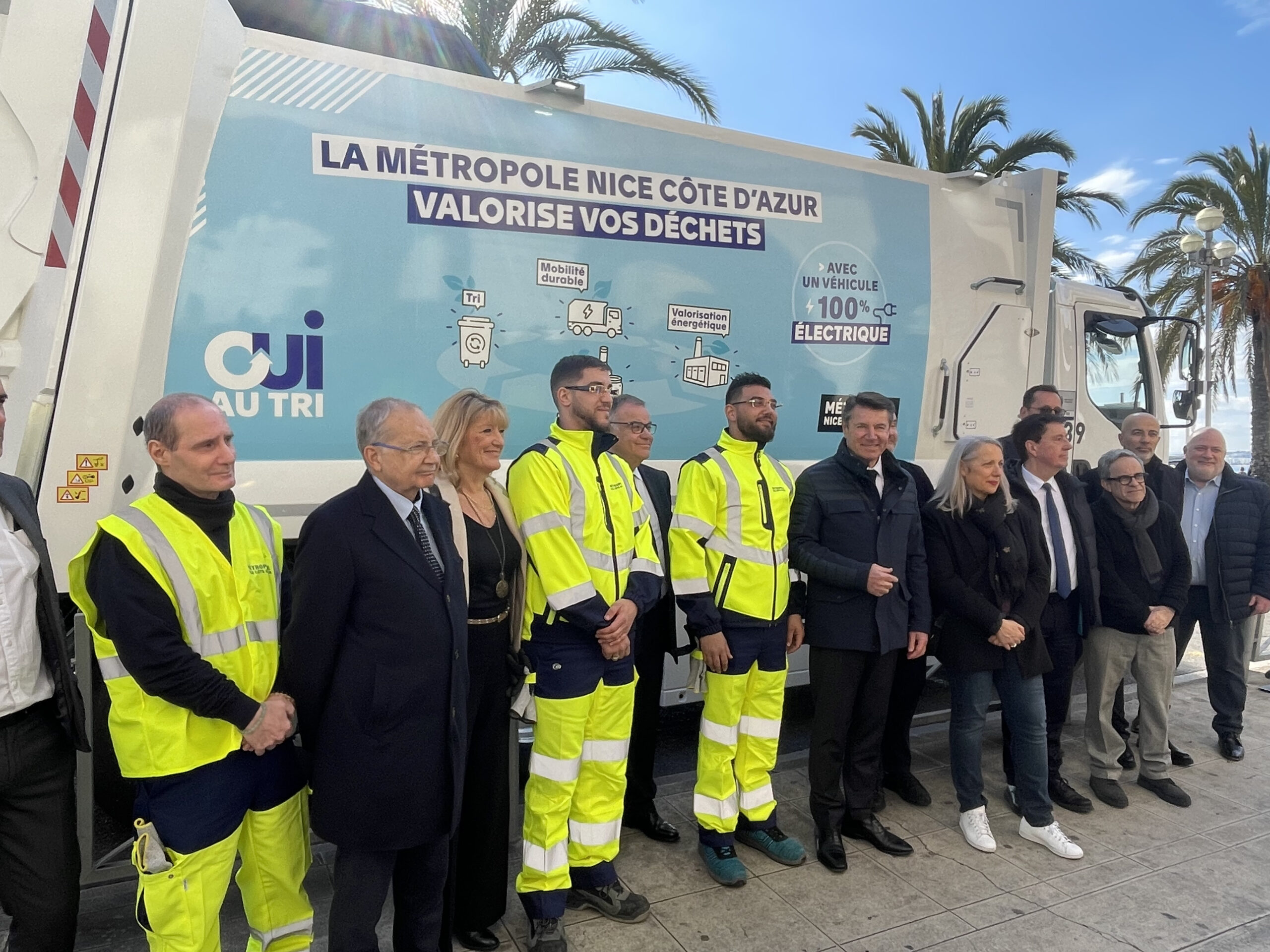
This morning, the Nice Metropolis unveiled its very first 100% electric garbage truck. This marks a major advance for the city, furthering its commitment towards cleaner mobility and a reduction in CO2 emissions.
Three years ago, the Metropolis expressed its ambition to equip the city with electric garbage trucks. Today, that promise becomes a reality with the arrival of a first zero-emission vehicle, soon to be followed by two others thanks to the support of the FDMA authority.
This 26-ton, six-wheeled model will allow for waste collection in silence and without pollution. However, its size imposes certain constraints: it cannot be used on certain narrow streets, like Avenue Victor Hugo. On the other hand, it will be deployed in the pedestrian zone and on the Promenade des Anglais.
A positive ecological and economic impact
The advantages of this electric garbage truck are numerous.
- Zero CO2 emissions
- Zero fossil fuel consumption
- Zero conventional mechanical maintenance
In terms of innovation, Nice thus joins major French metropolises like Paris and Lyon, which are already equipped with this type of vehicle.
An ambitious goal for 2025 and beyond
The Mayor of Nice emphasized the city’s ecological commitments:
-25% in CO2 emissions by the end of 2025 (goal nearly achieved with a current reduction of 24%).
-50% by 2030, with carbon neutrality targeted for 2050.
To achieve these goals, the Metropolis focuses on several areas:
Promoting walking: Nice is already the city where people walk the most in France, with 59% of trips made without a car.
Developing bicycle lanes: 70 km of paths already arranged, with new projects planned for 2025.
Encouraging electric mobility: installation of numerous charging stations, integration of clean buses, and now, electric garbage trucks.
A well-advanced energy transition
The mayor also insisted on the need to produce local and affordable energy. Thanks to ongoing projects, Nice is developing a sustainable energy network with innovative infrastructures:
Waste incineration at Ariane to produce low-cost electricity.
Geothermal energy to power the Nice-Méridia district and the Allianz Riviera.
The expansion of charging stations to promote the adoption of electric vehicles.
In a few years, 55% of the energy consumed by the city will be produced locally at only 5 cents per kWh, well below market prices.
A modernization of waste collection
The new electric trucks also contribute to a better quality of life for residents. Quieter, they will reduce noise pollution, especially during nighttime collections.
In parallel, Nice continues its modernization program with more efficient logistics, to prevent congestion on roadways and ensure clean streets from the early morning hours.
Finally, the Metropolis sought to highlight the Nice-based company Ippolito, a major player in the manufacture of industrial vehicles. A choice that not only limits imports but also supports the local economy.